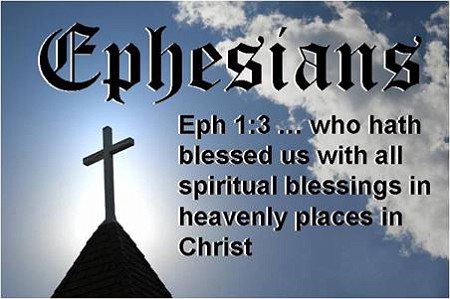-
Why did Paul say the Galatians were foolish? vs. 1
You foolish Galatians, who has bewitched you, before whose eyes Jesus Christ was publicly portrayed as crucified?
Something crazy has happened, for it’s obvious that you no longer have the crucified Jesus in clear focus in your lives. His sacrifice on the cross was certainly set before you clearly enough. [MSG]
-
What is the only thing Paul wants to find out from them? vs. 2
This is the only thing I want to find out from you: did you receive the Spirit by the works of the Law, or by hearing with faith?
Let me put this question to you: How did your new life begin? Was it by working your heads off to please God? Or was it by responding to God’s Message to you? [MSG]
-
How are they being foolish concerning their Christian walk? vs. 3,4
Having begun by the Spirit, are you now being perfected by the flesh?
After beginning with the Spirit, are you now trying to finish by human effort? [TNIV]
-
The Lord has provided them with the Spirit and has been working miracles among them. What does Paul want them to ask themselves in regard to this? vs. 5
So then, does He who provides you with the Spirit and works miracles among you, do it by the works of the Law, or by hearing with faith?
Does God give you his Spirit and work miracles among you by your observing the law, or by your believing what you heard? [TNIV]
Does He do these things because of your strenuous moral striving or because you trust him to do them in you? [MSG]
-
What did Abraham do to become righteous before God? vs. 6
Abraham BELIEVED GOD, AND IT WAS RECKONED TO HIM AS RIGHTEOUSNESS.
Abraham believed God, and that act of belief was turned into a life that was right with God. [MSG]
-
How do we become a son of Abraham? vs. 7
Those who are of faith who are sons of Abraham.
Those who have faith are children of Abraham [TNIV]
-
How did Abraham hear the Gospel preached? vs. 8
The Scripture, foreseeing that God would justify the Gentiles by faith, preached the gospel beforehand to Abraham.
Scripture foresaw that God would justify the Gentiles by faith, and announced the gospel in advance to Abraham. [TNIV]
-
What was Abraham told when the Gospel was preached to him? vs. 8
“ALL THE NATIONS WILL BE BLESSED IN YOU.”
-
How are we blessed with Abraham, the believer? vs. 9
So then those who are of faith are blessed with Abraham, the believer.
-
How does a person come under a curse according to verse 10?
For as many as are of the works of the Law are under a curse.
For all who rely on works of the law are under a curse. [ESV]
All who rely on observing the law are under a curse. [TNIV]
-
What happens if a person tries to follow the law and does not obey everything that is written in the law? vs. 10
“CURSED IS EVERYONE WHO DOES NOT ABIDE BY ALL THINGS WRITTEN IN THE BOOK OF THE LAW, TO PERFORM THEM.”
“Cursed is everyone who does not continue to do everything written in the Book of the Law.” [TNIV]
And that means that anyone who tries to live by his own effort, independent of God, is doomed to failure. Scripture backs this up: “Utterly cursed is every person who fails to carry out every detail written in the Book of the law.” [MSG]
-
If this is the case, is anyone justified by the Law before God? vs. 11
Now that no one is justified by the Law before God is evident.
Now it is evident that no one is justified before God by the law [ESV]
-
How is the righteous man suppose to live? vs. 11
“THE RIGHTEOUS MAN SHALL LIVE BY FAITH.”
-
Can you live under the law and under faith at the same time? vs. 12
However, the Law is not of faith; on the contrary, “HE WHO PRACTICES THEM SHALL LIVE BY THEM.”
The law is not based on faith; on the contrary, it says, “Whoever does these things will live by them.” [TNIV]
-
How did Christ redeem us from the curse of the Law? vs. 13
Christ redeemed us from the curse of the Law, having become a curse for us—for it is written, “CURSED IS EVERYONE WHO HANGS ON A TREE”—
Christ redeemed us from the curse of the law by becoming a curse for us, for it is written: “Cursed is everyone who is hung on a pole.” [TNIV]
Do you remember the Scripture that says, “Cursed is everyone who hangs on a tree”? That is what happened when Jesus was nailed to the cross: He became a curse, and at the same time dissolved the curse. [MSG]
-
What is the result of having faith and being in Christ Jesus? vs.14 - Name 2 things.
in order that in Christ Jesus the blessing of Abraham might come to the Gentiles, so that we would receive the promise of the Spirit through faith.
He redeemed us in order that the blessing given to Abraham might come to the Gentiles through Christ Jesus, so that by faith we might receive the promise of the Spirit. [TNIV] Two purposes for Christ’s redemptive work are given, each introduced by the Greek conjunction hina, “in order that” (cf. 4:5):
(1) Gentiles might receive the blessing given to Abraham; as already stated (3:8 ) this is a reference not to personal or national blessings but to the promised blessing of justification apart from works of the Law, available to all who believe;
(2) all who thus believe might receive the promise of the Spirit, that is, the Holy Spirit, who was promised (cf. v. 2). Again the apostle emphasized that salvation and sanctification come by faith, not by works.
Walvoord, J. F., Zuck, R. B., & Dallas Theological Seminary. (1983-). The Bible knowledge commentary : An exposition of the scriptures (Ga 3:14). Wheaton, IL: Victor Books.
-
When God made a covenant with Abraham, who were the promises spoken to? vs.15-18
Now the promises were spoken to Abraham and to his seed. He does not say, “And to seeds,” as referring to many, but rather to one, “And to your seed,” that is, Christ.
-
How many years was the law given to Moses after the covenant of the promise of the Spirit given to Abraham? vs. 17
430 years later.
-
Did the Law invalidate (cancel out) the covenant previously made to Abraham? vs.17
The Law ... does not invalidate a covenant previously ratified by God, so as to nullify the promise.
-
What is Abraham's inheritance based on? vs. 18
For if the inheritance is based on law, it is no longer based on a promise; but God has granted it to Abraham by means of a promise.
-
Why was the Law added 430 years later if it did not have anything to do with Abraham's inheritance? vs. 19
It was added because of transgressions.
-
The law was added because of transgressions until the seed would come to whom the promise had been made. (vs.19). Who was the seed that the promise was made to according to verse 16?
The purpose of the law was to keep a sinful people in the way of salvation until Christ (the descendant) came, inheriting the promises and distributing them to us. [MSG]
-
Could the law ever impart life to bring about righteousness to us? vs. 21
Is the Law then contrary to the promises of God? May it never be! For if a law had been given which was able to impart life, then righteousness would indeed have been based on law.
Is the law, therefore, opposed to the promises of God? Absolutely not! For if a law had been given that could impart life, then righteousness would certainly have come by the law. [TNIV]
-
What has the Scripture done concerning all mankind? vs. 22
But the Scripture has shut up everyone under sin,
But the Scripture imprisoned everything under sin, [ESV]
But Scripture has locked up everything under the control of sin, [TNIV] The Law declared the whole world … a prisoner of sin. Referring perhaps to Psalm 143:1-2 or Deuteronomy 27:26, Paul declared that the whole world is trapped and under the dominion of sin (cf. Rom. 3:9, 23).
When people recognize this and give up attempts to please God by their own works, the way is prepared for them to receive the promise of salvation through faith in Jesus Christ.
Walvoord, J. F., Zuck, R. B., & Dallas Theological Seminary. (1983-). The Bible knowledge commentary : An exposition of the scriptures (Ga 3:21–22). Wheaton, IL: Victor Books.
-
If the law does not impart life, how do we receive the promise of life in Christ Jesus? vs. 22
so that the promise by faith in Jesus Christ might be given to those who believe.
so that what was promised, being given through faith in Jesus Christ, might be given to those who believe. [TNIV]
-
How do people live before faith in Christ is revealed to them? vs. 23
But before faith came, we were kept in custody under the law, being shut up to the faith which was later to be revealed.
Now before faith came, we were held captive under the law, imprisoned until the coming faith would be revealed. [ESV]
Before the coming of this faith, we were held in custody under the law, locked up until the faith that was to come would be revealed. [TNIV]
Until the time when we were mature enough to respond freely in faith to the living God, we were carefully surrounded and protected by the Mosaic law. [MSG]
-
What purpose then does the law have to every person? vs. 24
Therefore the Law has become our tutor to lead us to Christ, so that we may be justified by faith.
-
Once you are in the faith, do you need the tutor of the law any longer? vs.25
But now that faith has come, we are no longer under a tutor.
-
What have you become in Christ Jesus? vs. 26
For you are all sons of God through faith in Christ Jesus.
So in Christ Jesus you are all children of God through faith, [TNIV]
By faith in Christ you are in direct relationship with God. [MSG]
-
When we are baptized into Christ, what have we been clothed with? vs. 27
For all of you who were baptized into Christ have clothed yourselves with Christ.
-
What is the difference for male and female in Christ Jesus? vs. 28
There is neither Jew nor Greek, there is neither slave nor free man, there is neither male nor female; for you are all one in Christ Jesus.
-
If we belong to Christ, whose descendant do we become? vs. 29
And if you belong to Christ, then you are Abraham’s descendants,
-
What do we become an heir of? vs. 29
Heirs according to promise.
-
Think on today's lesson. Are you trying to please God by following the law or by your faith in Christ who fulfilled God's law for you? Summarize the chapter and post your prayer.









